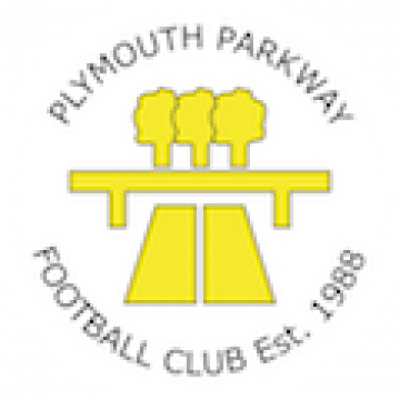PAFC Reserves Visit Bolitho
Plymouth Parkway are looking forward to welcoming Plymouth Argyle Reserves for the SWPL league fixture on Thursday 5th April 7:30pm Kick Off.
About Plymouth Argyle
Plymouth Argyle Football Club was born in 1886, when two friends decided the town (as Plymouth was then) needed a football team which local people would be proud to play for and support.
The friends, F Howard Grose and Mr W Pettybridge, arranged a meeting at The Borough Arms. After a discussion, the name “Plymouth Argyle” was agreed on – and the rest, as they say, is history.
Centre-back Grose became the first captain of the new football club, which had no ground of its own so played its early matches in the 1886-7 season at opponents’ grounds.
Shortly afterwards, the fledgling side made its home at a pitch in the Mount Gould area Plymouth.
And they’re off…
The team’s first game was on 16th October 1886, when they lost 2-0 against Caxton – a team from Cornwall.
For the record, that first team was: Gale, Lumm, Baker, Lew, Grose, Chapman, Dyer, Pettybridge, Boolds, Cornish and Vaughan.
Argyle didn’t have to wait much longer for their first win, which came later that week with a 2-1 victory over Plymouth College.
In 1889-90, Argyle moved to a new home at Marsh Mills. Then, in 1901, they moved to their current site at Home Park, which was previously the ground of Devonport Albion Rugby Club.
Bob Jack
Legendary manager Bob Jack in 1920
Professional Pilgrims
The next big landmark date was 1903, when Plymouth Argyle became a professional football club. A limited liability company was formed, under the guidance of local businessman Clarence Spooner.
To round off a good year, Argyle were accepted into the Southern League for the 1903-4 season.
Plymouth’s first manager as a professional outfit was Frank Brettell.
In their first game as a pro club, Argyle beat West Ham United 1-0 away in the Western League. Their first home game was on 5th September 1903, when they beat Northampton Town 2-0 in front of a crowd of 4,438.
Stand tickets cost 6d and gate receipts were £124!.
Argyle were Southern League champions in 1912-13, and were also runners up on two occasions.
Argyle join the Football League
Plymouth Argyle joined the Football League Division Three (South) in 1920, when the manager was Bob Jack. Argyle finished 11th in that first season, having drawn half of their fixtures.
Perhaps the most significant statistic was that the crowds rose dramatically to an average of 12,765 that year.
During the 1920s, Argyle finished runners up in Division Three (South) six times in a row, the first occasion being 1921-22.
Argyle eventually won promotion to Football League Division Two in 1929-30, when they topped Division Three (South). Attendances that season regularly reached 20,000.
Bob Jack was still the manager – and he was to stay on at the helm until 1937, when he announced his resignation.
Things were put on hold during World War II, and Home Park was badly damaged during an air raid.
Jack Chisholm
Jack Chisholm leads out the team in 1951
The club’s 20-year stay in Division Two came to an end in the 1949-50 season – despite the best efforts of inspirational skipper Jack Chisholm. Manager that year was former player Jimmy Rae.
But they were back in Division Two again before too long, after winning the Division Three (South) title in 1951-2.
Key players were Chisholm, and lethal goalscorers Maurice Tadman and George Dews.
Let there be light
Floodlights arrived at Home Park in the 1954-55 season…but the lights were soon to go out on the Greens’ Second Division – they were relegated at the end of the 1955-56 season.
One of the most bizarre events in Argyle’s history came in the spring of 1963, when they went on a mini-tour of Poland.
The Pilgrims were invited to play a game as a warm-up to an international cycle race. Which is why 100,000 saw Argyle that day – the biggest crowd ever to attend a Plymouth match.
Argyle had two big name managers during the 60s – Malcolm Allison and Billy Bingham. But it was a pretty disappointing decade for Argyle.
One of the high points was in 1965, when they reached the League Cup semi-final, where they lost against Leicester City.
Pele comes to Plymouth
Pele and his Santos team played Argyle at Home Park as part of their European tour in March 1973. Amazingly, Argyle won 3-2 in front of 37,639 people.
Brazil were, of course, the World Champions at that time having won the 1970 World Cup.
In 1974 – with future England striker Paul Mariner now playing for them – Argyle again reached the League Cup semi-final. Argyle drew the first leg against Manchester City 1-1, but lost the Maine Road encounter 2-0.
Waiters serves up promotion
After far too long in Division Three, Plymouth Argyle finally returned to Division Two at the end of the 1974-5 season.
Paul Mariner
Star striker from the mid-70s, Paul Mariner
Argyle finished runners-up to secure their promotion spot under the management of Tony Waiters.
Much of the credit went to strikers Paul Mariner and Billy Rafferty, who socred 46 league goals between them that term.
But they made a swift return to the third division in 1975-76.
Malcolm Allison returned as consultant manager in 1977-8, but he left the following season. Also in 1978-9, Kevin Hodges made his Argyle debut – he was to go on to play more games for the club than anyone else.
So near and yet so far
Argyle’s best ever FA Cup run came in 1983-4, when they reached the semi-final. It was played at Villa Park in front of 43,858 and the opponents were Watford.
Watford were beatable, and this was surely Argyle’s best ever chance of making it to an FA Cup Final.
Unfortunately, Elton John’s men sneaked a 1-0 win, George Reilly heading in a cross from John Barnes.
Manager John Hore didn’t last much longer – he was sacked during the next season and replaced by Dave Smith.
Argyle’s ups and downs
Smith led Argyle back to Division Two in 1985-6, but he left to manage Dundee at the end of the 1987-8 season.
During these years, the goals of Tommy Tynan gave fans hope of promotion to the top flight – Division One, but it eluded the Pilgrims.
Into the 1990s, and a new face took over the club: Businessman Dan McCauley became chairman and his first major decision was to sack manger Dave Kemp and appoint England’s record cap holder Peter Shilton as new manager in the 1991-2 season.
But Shilton was unable to halt Argyle’s slide down the league and they were relegated at the end of the season.
However, they started the 1992-3 season still in Division Two – but it was the new Division Two following the rejig of the League and the creation of the Premiership.
In 1993-4 Argyle reached the Division Two play-offs, but lost in the two-legged semi-final against Burnley.
Shilton parted company with Argyle during the 1994-5 season after being dogged by bad publicity surrounding his financial problems – and after his relationship with the chairman turned sour.
Argyle win the play-offs, 1996
Argyle players celebrate winning the ’96 play-offs
Things got worse for the Greens when they were relegated to Division Three – the basement league – at the end of the season.
The next season – 1995-6 – was far brighter. New boss Neil Warnock led Argyle to promotion via the play-off final at Wembley – the club’s one and only appearance at the stadium.
Argyle beat Darlington 1-0 in the Wembley final, with Ronnie Mauge entering Pilgrims folklore by scoring the winner.
Argyle’s ups and downs continued – and down they went again at the end of 1997-8. The next season was the worst in the club’s history – they finished 13th in the bottom division.
Up, up and away!
Paul Sturrock was appointed manager in the 2000-2001 term, and the turbulent McCauley era came to an end in the following season, 2001-2002.
A new board was established, led by chairman Paul Stapleton, and work finally started on rebuilding the Home Park stadium with the help of the city council.
It really was a year of fresh beginnings, because Argyle won the Division Three title at a canter (they amassed 102 points – the second highest in league history) to return to Division Two at the end of the 2001-2002 season.
Things got even better for the Pilgrims, who were Division Two champions in 2003-4 and were promoted to the newly created Coca Cola Championship.
But just before the end of the season, Sturrock up and left to take up the manager’s post at Southampton.
It meant new boss Bobby Williamson was actually in charge when Argyle clinched promotion and the championship – although he said he felt like he had gate-crashed a party and acknowledged the credit was down to Sturrock.
With three sides of Home Park now redeveloped, providing a capacity of just over 20,000 – and with the Greens in the second highest division in English football – Argyle have probably never had it so good.
The Greens often played before home crowds of approaching 20,000 in their first season in the Championship in 2004-5, when they finished 17th despite a few scares near the bottom of the league.
Hungarian midfielder Akos Buzsaky became Argyle’s record signing when he signed for an undisclosed fee – thought to be around £350,000 in 2005.
Further changes in management saw Tony Pulis and Ian Holloway take the helm, before Paul Sturrock returned to Home Park during the 2007-8 season.
After going through an Administration process the club are now managed by Derek Adams whom has seen the side miss out on promotion in his first season by play offs to securing second place in League 2. The club now reside in League 1.















